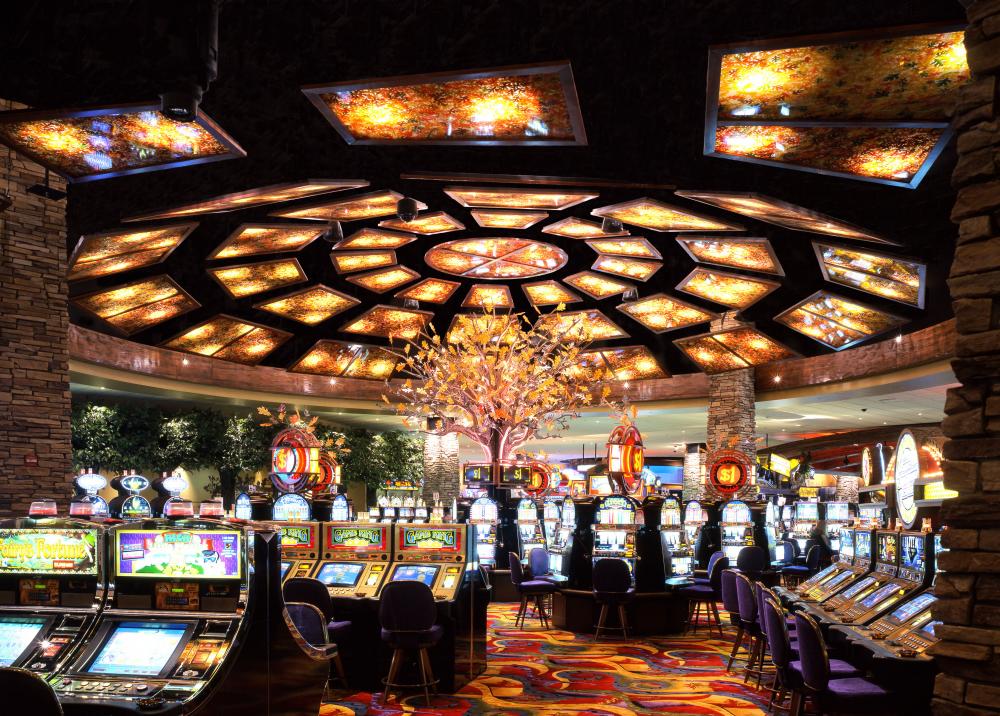In the world of gambling, in which chance and strategy intersect, a unique tapestry of beliefs manifests—one that braids luck, fate, and the enigmatic nature of casino games. Casinos, bustling with excitement and anticipation, are not just places for placing bets; they are also arenas in which superstitions thrive. From the novice player to the seasoned gambler, these mysterious practices often shape how individuals approach the games they play, believing that their actions can affect the outcome in ways that go beyond mere probability.
As players gather around roulette wheels, blackjack tables, and slot machines, the atmosphere is thick with stories of lucky charms, rituals, and codified behavior that defy logic yet provide a sense of comfort. Ga179 Whether it’s wearing a specific outfit, following a particular sequence of bets, or even avoiding certain numbers, the attachment to various superstitions reflects a deep-rooted desire to master the uncontrollable. This article delves into the captivating world of casino game superstitions, exploring the beliefs that both entertain and mystify those who dare to play.
Cultural Origins of Superstitions
Casino activities have long been entwined with an array of superstitions that trace to ancient civilizations. The origins of these ideas can be connected to humanity’s innate wish to influence the uncertain outcomes associated with chance and uncertainty. In primitive civilizations, activities of uncertainty were often connected to spiritual practices. Players would call upon aid or ask for favor from gods, believing that their actions could affect the outcomes in their benefit. This foundation laid the basis for the multitude of superstitions that developed as betting evolved over ages.

During the medieval age, betting became a common activity across the continent, and with it, a diverse tapestry of superstitions developed. Players adopted various rituals and charms, believing they could change the consequences of games. The importance of numbers, in particular, started to manifest in superstitions pertaining to card games and dice. The number seven was often considered lucky, while other numbers carried negative connotations. These ideas mirrored the societal contexts of the time, changing as they passed through generations and changed to different gaming environments.
As gambling houses appeared in the 17th century, particularly in Italy and the French nation, the atmosphere surrounding betting became saturated in mystique. The growing availability of casino games allowed for the dissemination and variation of superstitions among players. Concepts like charmed charms, designated seating locations, and rituals gained importance, creating a special culture within betting houses. As these customs continued to thrive, they became fundamental to the essence of gambling activities, illustrating how the past and society shape the belief systems that influence how players engage with luck.
Common Casino Myths
Beliefs surrounding gambling activities are abundant and varied, mirroring the hopes and fears of players as they participate in chance-based games. One of the most prevalent views is that specific digits bring luck or bad luck. For example, the number seven is often seen as a favorable digit, frequently embraced by gamblers looking for a positive result. Conversely, the digit thirteen is routinely considered unlucky, leading many gamblers to avoid it during their gambling periods.
A frequent belief relates to practices that gamblers believe can affect their chances. It could be blowing gently on the dice before a roll, using a specific gesture to place a bet, or even wearing specific items of clothing, many people feel that these actions can tilt luck in their benefit. These practices offer a sense of control in an otherwise random environment, strengthening the idea that fortune can be created through personal convictions and customs.
Lastly, the environment and atmosphere of the casino itself contributes to superstition. Many players suggest that the presence of specific icons, such as four-leaf clovers or lucky tokens, can enhance their chances of winning. Additionally, players might hold to the notion that victory streaks can be interrupted by mundane occurrences, such as a person passing by or a spill at the gaming surface. The shared environment in a gambling house can amplify these superstitions, creating a shared culture of superstitions that goes beyond individual experiences.
Impact of Superstitions on Players
Superstitions play a important role in the mindset of casino players, often influencing their behavior and choices. Many gamblers believe that luck can be manipulated through different rituals, such as donning a talisman, choosing particular hues, or avoiding certain numbers. This reliance on superstitions can create a sense of authority in an environment that is intrinsically unpredictable. Players often feel more self-assured and involved when they believe that their actions could sway the outcome of a game in their advantage.
The influence of these superstitions extends past singular players, affecting the general atmosphere within the casino. For instance, a player who believes in the luck of a certain slot machine might attract a gathering, as onlookers are fascinated by their apparent success. This collective belief can amplify excitement and create a dynamic environment, leading to an captivating experience even for those who may not necessarily be believers themselves. The excitement around certain games can lead to higher participation and extended playing sessions, supporting the casino’s vibrant social scene.
In some cases, superstitions can lead to harmful effects for players. Depending too much on rituals can result in bad gambling decisions, as some may overlook basic strategies in favor of baseless beliefs. Additionally, the pressure to perform rituals may heighten anxiety and stress levels, diminishing from the enjoyment of the experience. Ultimately, while superstitions can enhance the excitement of playing casino games, they can also lead to unwise choices that overshadow the enjoyment and entertainment intended in the casino experience.